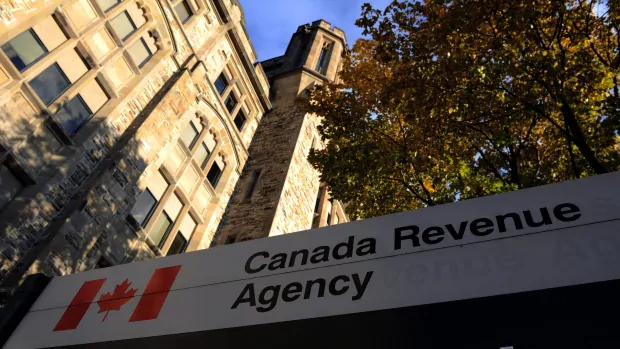Canada’s tax agency has taken 3,300 tips on suspected abuse of emergency aid programs designed to help people and businesses taking a financial hit during the COVID-19 pandemic.

Canada’s tax agency has received more than 3,300 tips on suspected abuse of emergency aid programs designed to help the people and businesses taking a financial hit during the COVID-19 pandemic.
The number of tips about possible fraud involving the Canada emergency response benefit (CERB), the wage subsidy program and student COVID-19 aid is growing fast. As of May 31, the Canada Revenue Agency had received 600 tips; just over a week later, that number had swelled to 1,300.
CRA told CBC that as of June 21, it is reviewing more than 3,300 “leads” through its confidential online portal.
Canadians already have made 361,000 repayments for CERB aid they weren’t eligible for. That’s up from 190,000 as of June 3.
CRA said repayments were made in cases where applicants received a double payment for the same period, were not actually eligible for the benefit or returned to work earlier than expected.
CRA spokesman Christopher Doody said that in cases where claimants are found to be ineligible, they’re contacted by the CRA to make arrangements to repay — but to date all the repayments have been voluntary.
CRA said it carries out pre-payment verifications and post-payment reviews for COVID-19 benefits.
When the CRA receives a tip about abuse, it takes steps to identity the suspected cheat and review the case to determine if cheating occurred, according to the agency’s website. If verified, it will then take “appropriate action” to address the specific type of cheating.
Prime Minister Justin Trudeau and some federal ministers have said the government will not go after those who made honest mistakes when filing for emergency benefits, but they’ve vowed to crack down on those caught deliberately defrauding the system.
Bill outlining penalties doesn’t pass
The government had proposed legislation that would have imposed stiff penalties for deliberate CERB fraud, including fines and jail time. After a backlash that saw the government accused of trying to scare people even more during a global pandemic, the bill failed to pass a Commons vote earlier this month.
People who report suspected benefit abuse are guaranteed privacy and anonymity, and are not asked to disclose their own personal information. They are asked to provide as many details as possible about the suspected cheat and the reasons for making the allegation.
CRA does not give cash rewards for information about suspected cheating.
Conservative MP and employment critic Dan Albas said many Canadians were confused about the eligibility rules for CERB and weren’t sure if they qualified for it or not. He also suggested some people are deliberately abusing the system.
“For months, Justin Trudeau has failed to take the issue of CERB fraud seriously. Instead of listening and fixing the gaps in existing programs, the Trudeau Liberals are giving hundreds of millions of dollars to fraudsters. This is wrong. Conservatives will continue to make sure taxpayers are respected while ensuring support gets to Canadians who need it,” he said in a statement.
CRA would not say how many claims have been found to be fraudulent.
“The Canada Revenue Agency does track the number of fraudulent CERB claims, but to protect the integrity of our processes, these specific statistics are not available at this time,” it said in a statement to CBC.








